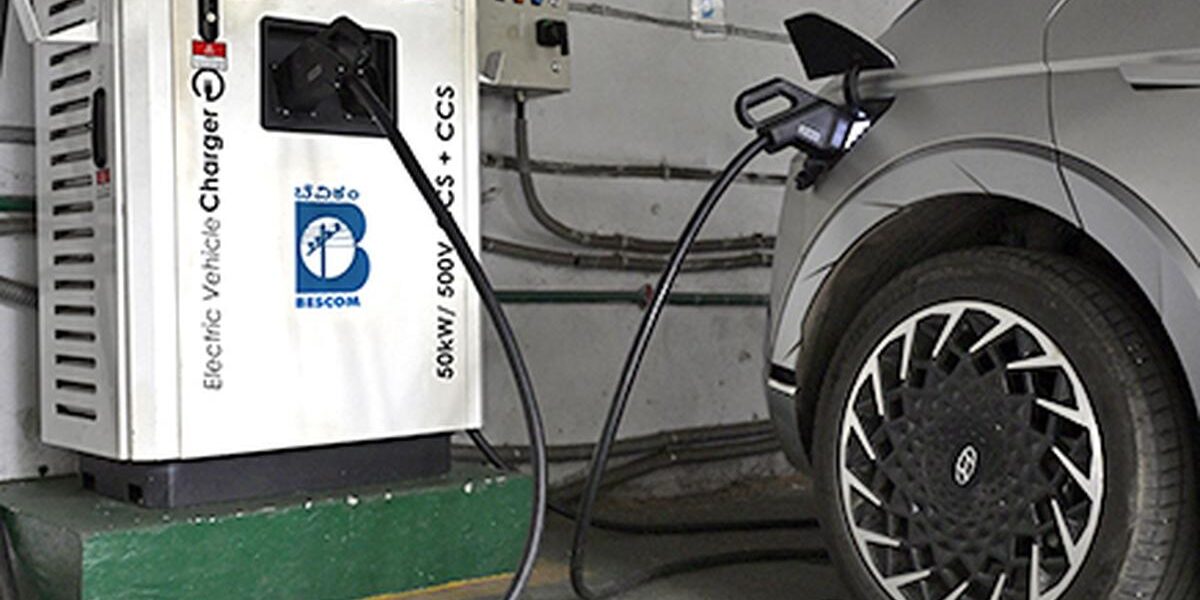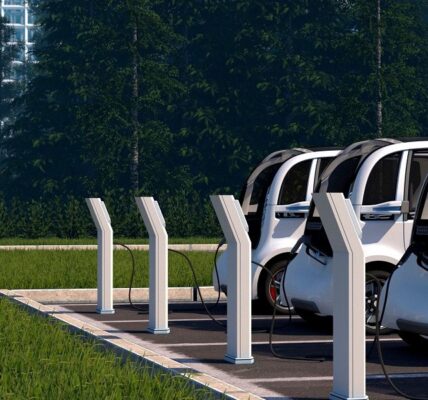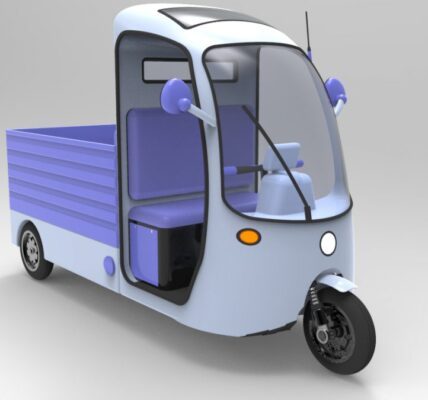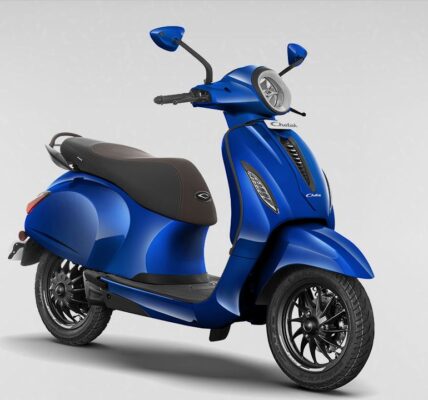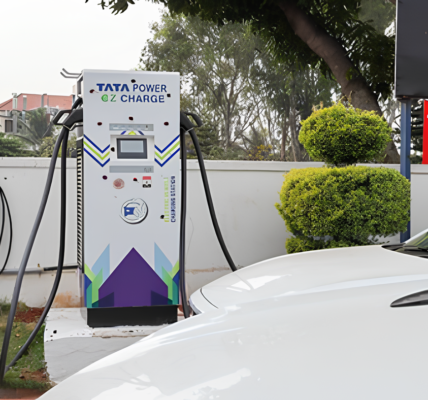Charging Sessions Go Up At Public EV Charging Stations In Karnataka As Number Of EV Users Increases
In the last few months, the Bangalore Electricity Supply Company (Bescom) has seen an increase in electricity consumption in their public Electric Vehicle (EV) charging stations. While 14,648 charging sessions delivering electricity of 65,278 kWh were registered in November 2024, the number went up by more than two times in the month of April 2025, as 29,538 charging sessions were registered delivering around 1,85,051 kWh electricity.
Bescom officials attributed this rise to the increasing number of EVs and charging stations in its jurisdiction.
Total number of charging sessions in Bescom EV charging stations
Month Charging sessions
November 2024 14,648
December 2024 16,993
January 2025 16,773
February 2025 19,522
March 2025 26,656
April 2025 29,538
“The number of EVs, especially around Bengaluru, has been going up consistently over the years. We have increased the number of public charging stations to cater to this demand. We have added 140 new stations since the beginning of this year,” said a senior official from Bescom.
According to the data available on Vahan dashboard, the official portal of the the Ministry of Road Transport and Highways (MoRTH), 19,284 new EVs were registered across Karnataka from January 2025 till date. Between 2022 and 2023, the State saw a sharp spike in the number of EV registrations with 1,52,663 new EVs registered in 2023. In 2022, 95,839 new EVs were registered.
In 2024, the number of new EV registrations (battery operated vehicles and pure EV) was 2,03,453.
Increase in demand
Year Number of EVs registered
2022 95,839
2023 1,52,663
2024 2,03,453
2025 (till date) 19,284
EV sellers have seen an increase in demand in the last few years.
“Bengaluru has been one of the top three performing cities for Oben Electric, reflecting the city’s growing appetite for sustainable, tech-driven mobility solutions. Over the past two years, demand for EVs here has seen a significant upswing,” said Dinkar Agrawal, founder, CTO, COO at Oben Electric.
“Several factors have contributed to this growth. Karnataka’s EV policies played a key role by offering demand-side incentives, supporting local manufacturing, and enabling faster infrastructure deployment. Bengaluru’s early adopter mindset, environmental consciousness, and tech-forward population further accelerated this shift. The steady expansion of public and private charging networks across the city has helped ease range anxiety, making EVs a practical choice for daily commuting,” he said.
EV buyers, on the other hand, say they are prompted by economic reasons.
Sriharsha. M., a resident of Jayanagar, who bought an electric two-wheeler in October 2024, said, “Switching to an EV has saved both time and money, as there are no more long waits at petrol stations. My running cost has dropped significantly. The fact that I will be contributing to a cleaner environment also made me want to buy an EV.”
The latest data provided by the Central Government shows that Karnataka has the highest number of public EV charging stations (5,880) in India, out of which over 4,000 are in Bengaluru. However, with the increasing number of vehicles, motorists say that the existing infrastructure is not enough. Many of them complain that the public charging stations set up by both private companies and the government are not free of glitches.
“Sometimes, the apps which I use show that a certain public charger is working, but when I go there, it will be out of service. I do not find charging stations nearby in all the areas. The need of the hour is an increase in the number of public chargers across Bengaluru. Those who set up chargers should ensure that it is in the right condition to provide services to EV users,” said Shalini. Y.P., an electric two-wheeler user from Thalaghattapura.
EV sellers opine that increasing and enhancing the infrastructure will provide more commuters with the confidence to switch to EVs.
“While Bengaluru has made commendable strides in building EV infrastructure, with over 4,400 charging stations already operational, the challenge now lies in scaling up with speed. Infrastructure needs to be not just available but ubiquitous, user-friendly, and integrated seamlessly into daily routines,” said Mr. Agrawal.
“For a leading EV city like Bengaluru, the next phase of growth depends on deepening infrastructure access across residential, commercial, and transit zones. As electric two-wheeler adoption accelerates the gaps in convenience and charging speed while uniformity across platforms could influence consumer confidence.”
Battery powered charging station near Devanahalli
After a long wait for formal inauguration, Bescom’s first-of-its-kind initiative — an EV charging station powered by second-life batteries — has begun operations near the Kempegowda International Airport at Devanahalli.
In February, 1,606 charging sessions were recorded at the station while in March, the number more than doubled with 3,804 charging sessions. In April, 5,069 charging sessions were recorded at the station.
This charging station has a rooftop solar installation, which powers the chargers during day time. The excess solar energy is stored in batteries and is used to power the chargers in non-solar hours.


